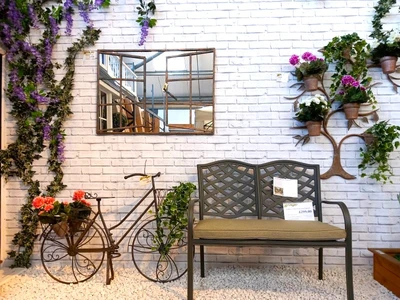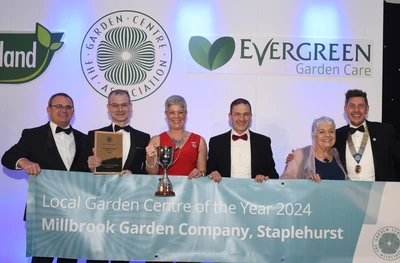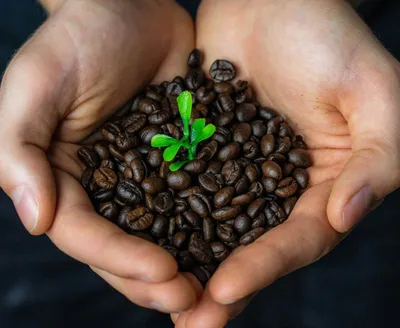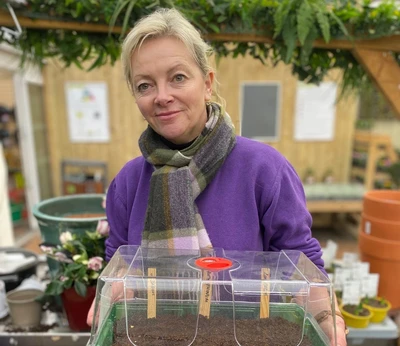Our Plant Area Manager Lucy writes about her recent visit to UK nurseries in the stunning Malvern Hills - sharing what she's learnt about growing peat-free plants from some of most trusted suppliers.
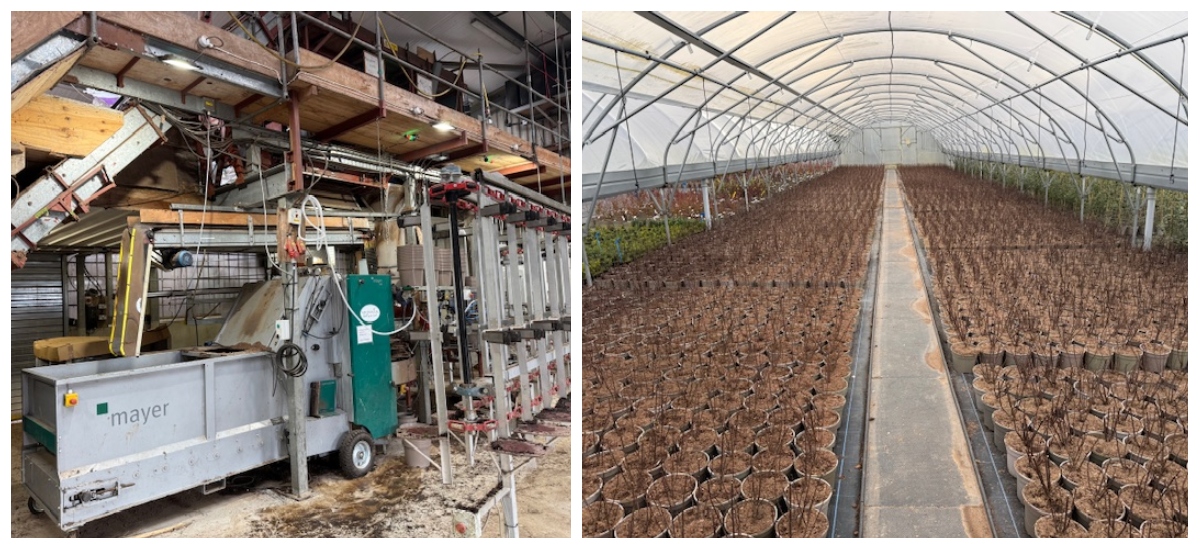
Peat-free growing trials
At Millbrook, we take great pride in working with local UK growers. Our British suppliers have a deep passion for plants, and they're continuously innovating to improve plant health and reduce environmental impact.
For innovation one grower, John Richards, really stood out on our trip – from self-made potting machines tailored to their specific site, to advanced polytunnels designed for optimal air circulation, they're also at the forefront of peat-free growing trials.
John aims to grow trees, shrubs and climbers that not only thrive in his care but continue to flourish once they leave his nursery. He set up his own soil trials to ensure the plants he grows will thrive long into the future. After years of testing (and overcoming a few hurdles), the team discovered some surprising results – peat-free soil actually retains moisture for longer than traditional peat composts!
This is good news, as the UK government has set a target to reduce the sale of peat-based compost. Initially, there were concerns in the horticultural world about the quality of peat-free alternatives. However, over the past two years, growers have made incredible strides and today natural wood fibre is the magic key ingredient in most peat-free soils today.
How to water peat-free plants
In the past, you could water a plant heavily and neglect it, and it would bounce back. One thing to keep in mind is that peat-free soils are not as forgiving.
A great rule of thumb is the ‘lift test’. If a pot feels light, it's time for a drink. If it feels heavy, it doesn't need watering yet. Our suppliers emphasised that peat-free grown plants do not require more water – they just need it more frequently.
Another key piece of advice from suppliers is to water from the base of the plant. Whether it’s in a border or a pot (make sure to use a saucer underneath), watering from the base is best because it allows the roots to take in the necessary nutrients and water. Roots will naturally grow where space allows. In a pot, they will reach for the bottom, and in the ground, they will anchor deep down.
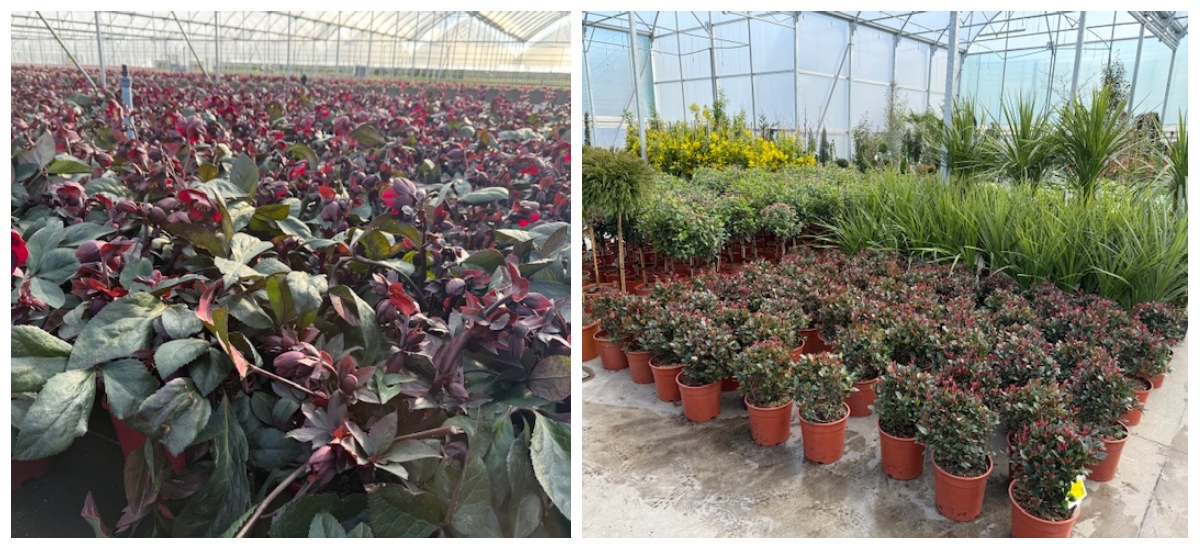
Growing peat-free perennials
Allensmore Nurseries is our biggest suppliers of perennials, providing Millbrook with excellent-quality plants. Their perennials really come to life in late spring, providing huge pots full of vibrant colour for the centres.
Allensmore has undertaken two-year-long trials using their own peat-free soil. They tested nutrient retention and found that, when watered, some of the nutrients would leach out. With this knowledge, they’ve adjusted their feeding regimen, which has resulted in peat-free grown plants with improved root systems and better health.
Why plant root systems are so important
One of the most eye-opening parts of the visit was a demonstration on plant growth. We were shown two plants, one taller than the other. You would naturally assume the taller plant offers better value for money. However, when we looked at the root systems, it became clear that wasn’t the case. The shorter plant had a much healthier, more robust root system, while the taller plant had a shallower, weaker one. A plant with weaker roots won’t thrive in the long term.
So, when you're choosing plants at garden centres, keep this in mind. The effort, time and care that goes into nurturing plants – particularly in their early stages – can impact the long term strength of their roots.
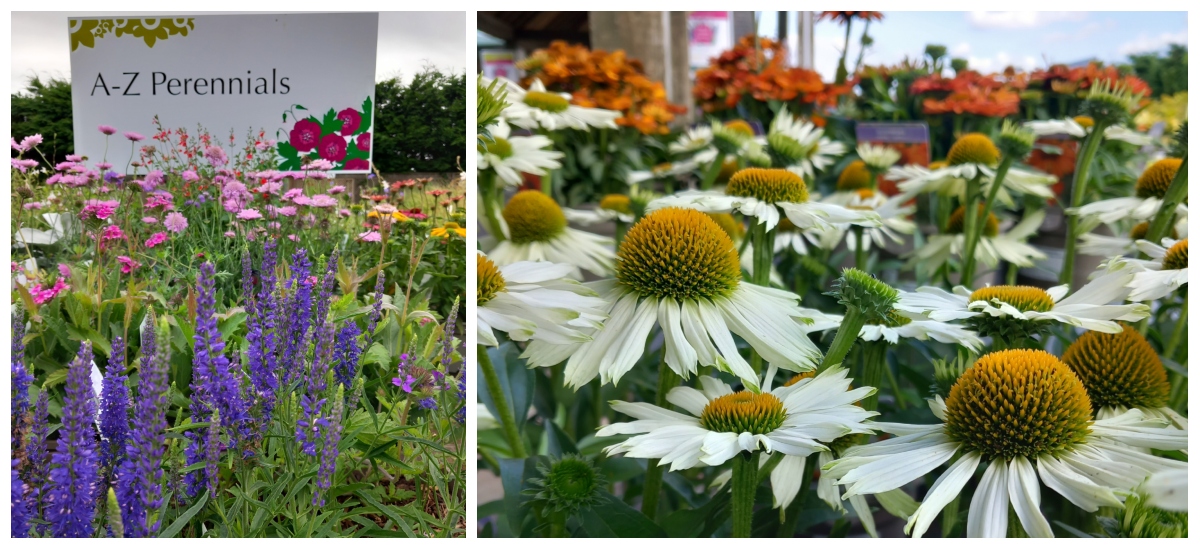
Peat flies and fungus gnats
As we grow more with peat-free soil, we're becoming more aware of peat flies and fungus gnats. They tend to thrive in damp, warm conditions but while these pests may be a bit annoying, they won't harm your plants. They don't suck sap from leaves like aphids or blackfly, but are simply attracted to the moist environment of peat-free compost.
To help prevent peat flies, we recommend covering pots with decorative stones or gravel. This makes it difficult for the flies to lay their eggs on the surface of the soil. Letting the top layer of soil dry out also helps.
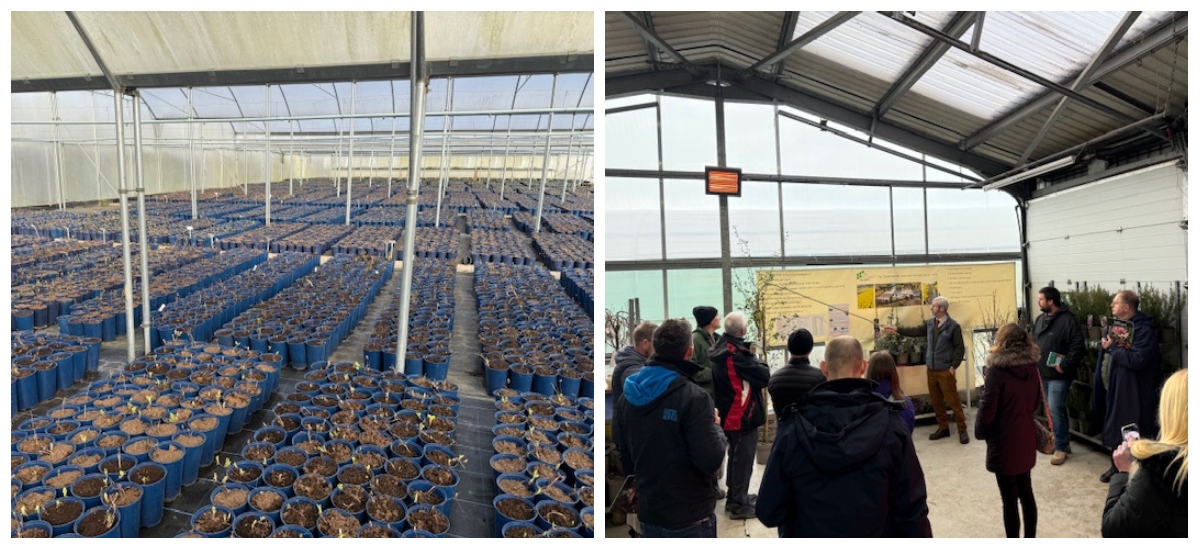
Don't give up!
If you’ve had challenges with peat-free planting in the past, don’t give up! The peat-free composts we stock now – alongside our range of specially formulated feeds – produce really fantastic results. And as my visit to nurseries shows, we also stock British-grown plants that have been carefully nurtured to thrive in peat-free soil.
Millbrook is here to help you grow a beautiful and planet-friendly garden. Pop in-store and chat to our knowledgeable and friendly plant team today. Happy planting!

